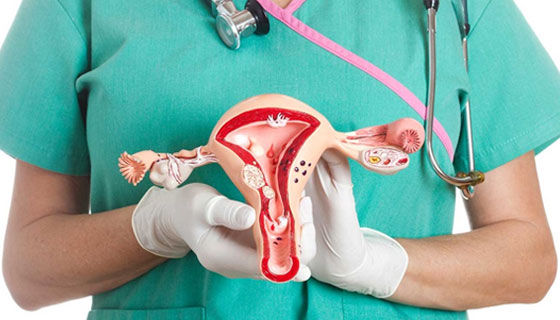Many women around the world suffer from PCOS (Polycystic Ovary Syndrome), and most of them are undiagnosed. PCOS can lead to irregular periods, excess body hair, acne, infertility, or hair thinning. Of course, all this can significantly impact your life, and to manage these symptoms, you can also try a natural PCOS supplement after consulting with your doctor.
When you hear the term PCOS, you may immediately think that your ovaries are damaged, and hysterectomy PCOS may help you get rid of the syndrome. However, it’s essential to note that the cause of PCOS is linked to hormone and metabolic issues, and removing your reproductive organs may not be the solution.
Let’s talk in detail about the pros and cons of a hysterectomy for PCOS, so you can make the right decision without risking your health.
Hysterectomy and PCOS
PCOS is quite misunderstood by many people, including some physicians. If your doctor has asked you to go for a hysterectomy to treat PCOS, you must consult other doctors before finalizing the decision, as this may have adverse effects later in your life.
PCOS is a consequence of hormonal dysfunction and has nothing to do with issues related to structure.
If PCOS is not managed and left untreated, it can lead to serious medical conditions like uterine cancer, which may require a hysterectomy. Again, in this case, you need to look for other treatment options first, like hormonal treatments.
Advanced endometriosis and problematic fibroids may also require a hysterectomy.
Why a Hysterectomy Is Not a Cure for PCOS?
Whether you have an oophorectomy or hysterectomy, it will lead to surgical menopause. In other words, you won’t get your period, which means you won’t be able to conceive. This can be crucial for women who want to start a family or have more children.
These are some of the common side effects of hysterectomy:
- Mood changes
- Urinary incontinence
- Hot flashes
- Insomnia
- Increased risk of osteoporosis due to the loss of estrogen
Nevertheless, a hysterectomy is not a cure for PCOS due to the following reasons.
Production of Androgens Persists
The symptoms of PCOS are caused by the imbalance of androgens and insulin. Increased levels of androgens in a female body lead to acne, facial hair, and other problems.
You may think that having a hysterectomy and getting your ovaries surgically removed will help you get rid of this problem. However, in reality, the production of androgens may remain elevated.
The adrenal glands also release androgens and may produce even more to overcome ovarian production loss. Therefore, you may suffer from the same symptoms, like facial hair and acne.
Metabolic Problems
Removing the ovaries of a woman suffering from PCOS isn’t right from a metabolic perspective. In order to properly regulate the metabolic functioning in females, estrogen is crucial.
PCOS causes females to have dysfunctional estrogen receptors. Therefore, ovaries help produce estrogens. Once your estrogen levels drop, it can lead to several health complications like hypertension, diabetes, and even obesity.
Therefore, you should incorporate healthy changes in your life to manage the symptoms of PCOS more effectively, such as starting a healthy diet, exercising, sleeping well, and reducing stress.


